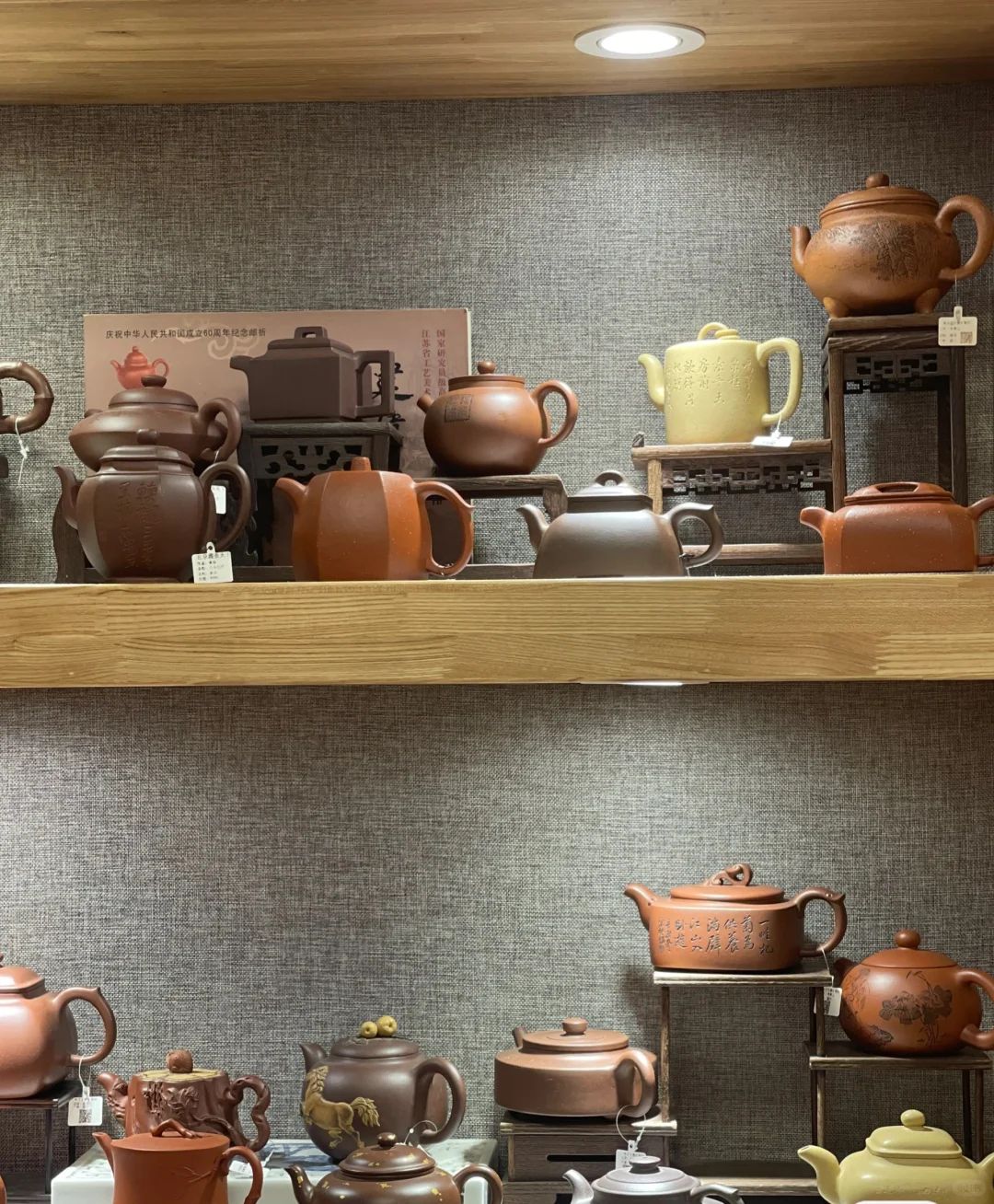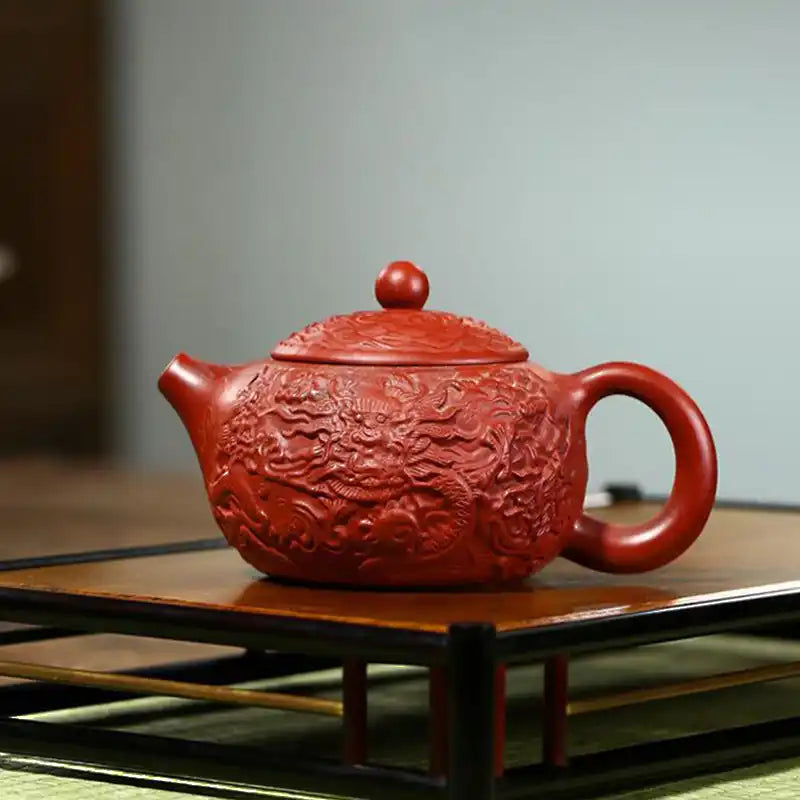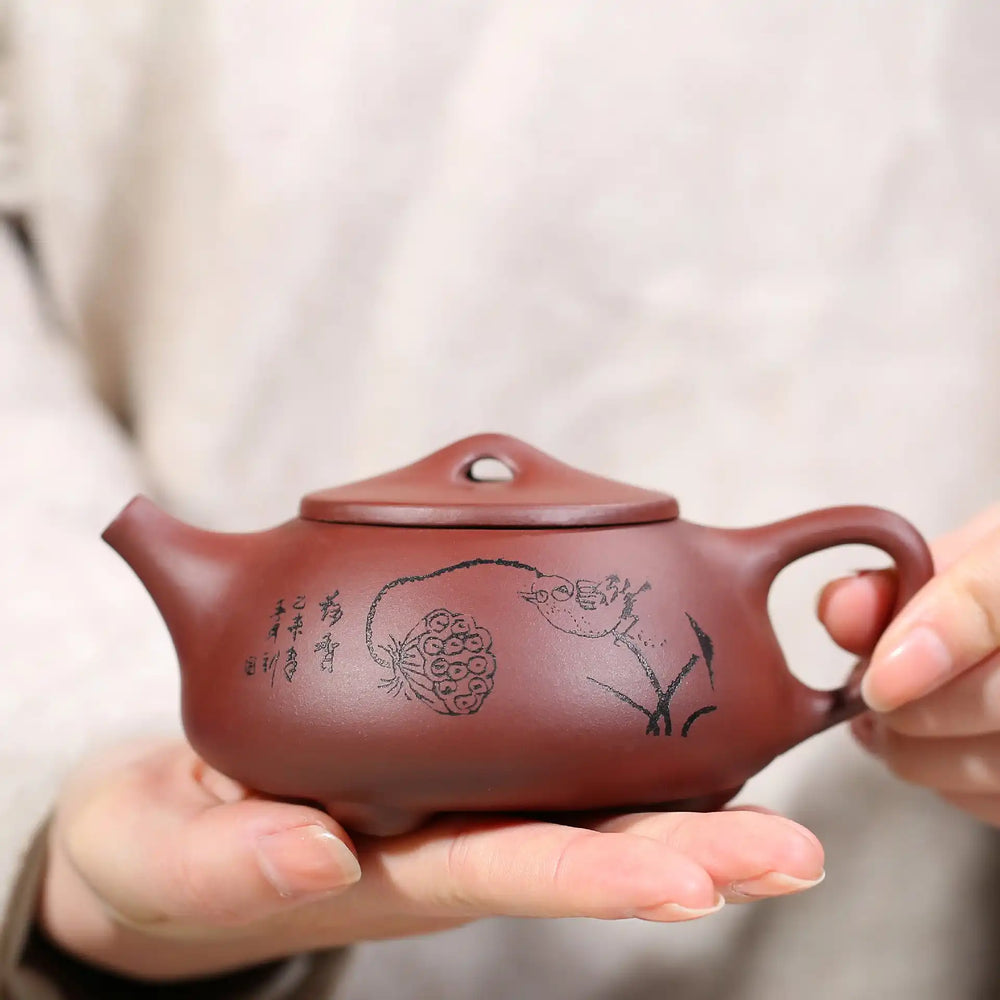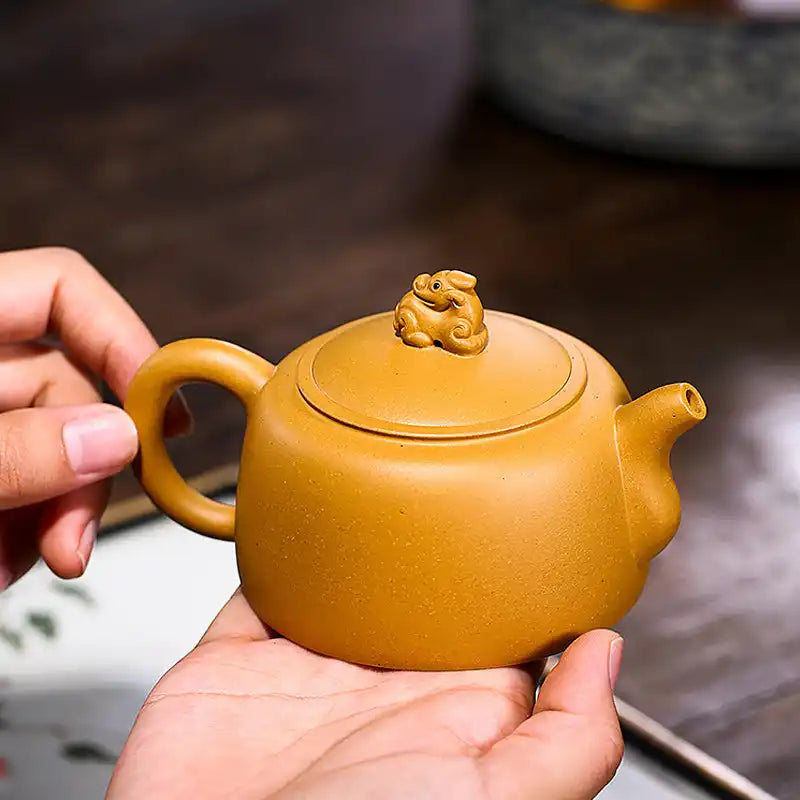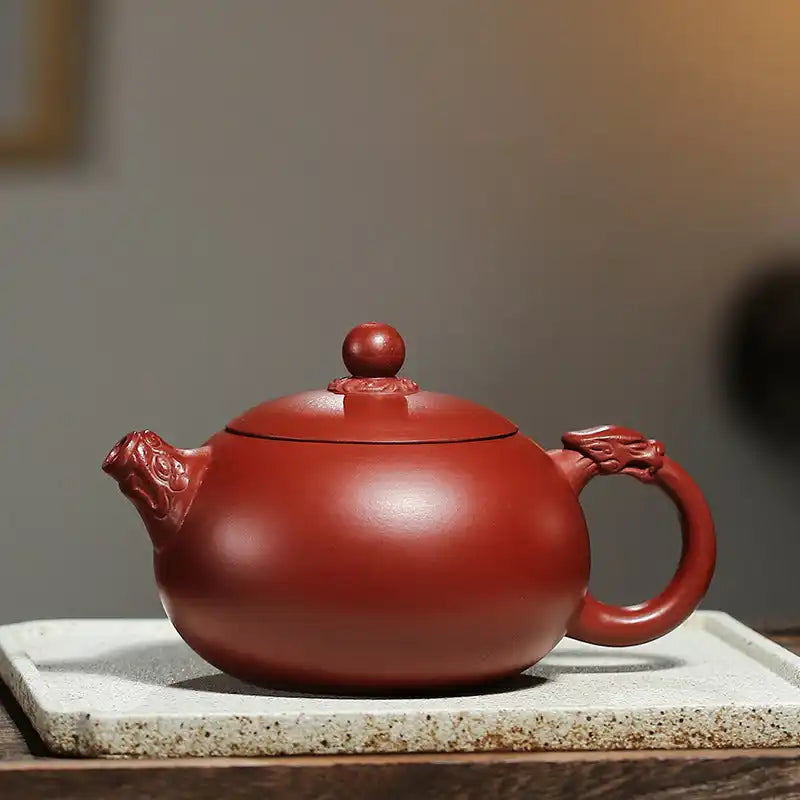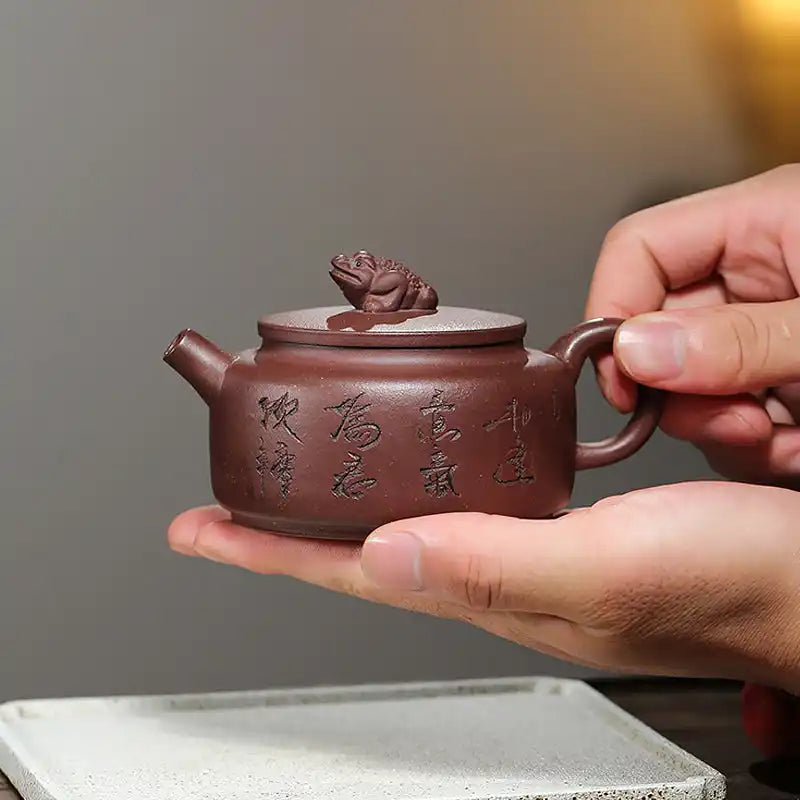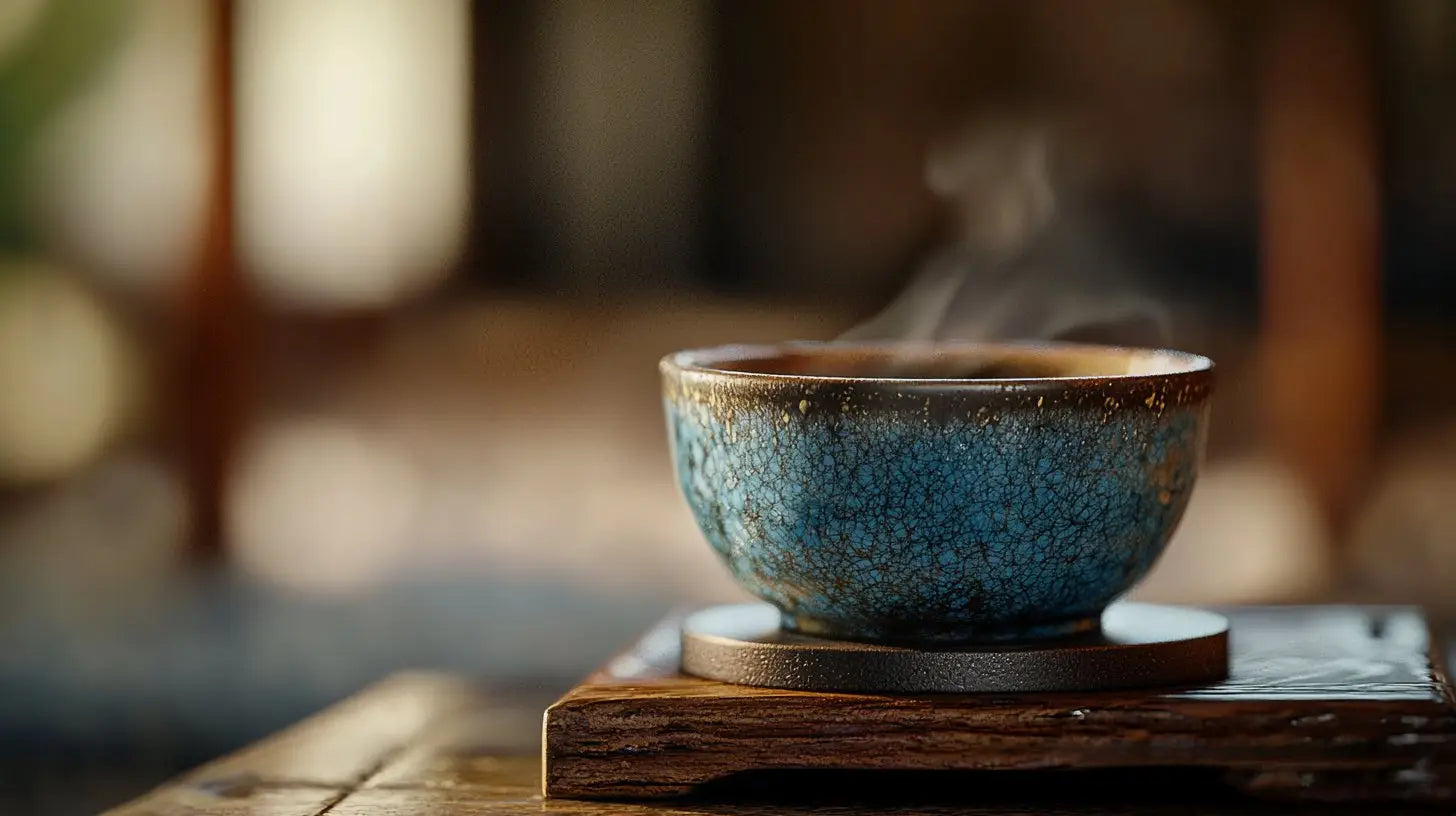🏺 Yixing Purple Clay Teapots: The Science Behind the Clay
Discover why these legendary teapots are considered the pinnacle of tea brewing vessels

🌍 The Geological Marvel of Yixing
Yixing purple clay (紫砂, zisha) is not just any clay - it's a geological treasure found exclusively in the hills around Yixing City, Jiangsu Province, China. This unique clay has been forming for millions of years, creating a material with properties that modern science is still working to fully understand.
🔬 The Scientific Composition
Yixing clay contains a unique blend of minerals:
- Kaolinite (40-60%): Provides plasticity and strength
- Quartz (10-20%): Adds durability and heat resistance
- Mica (15-25%): Creates the distinctive shimmer
- Iron oxides (2-8%): Responsible for the purple coloration
- Trace minerals: Contribute to unique properties
What makes this clay extraordinary is its double-pore structure - a network of both open and closed pores that allows the teapot to "breathe" while maintaining structural integrity.
🎨 The Three Sacred Clays
🟣 Zi Ni (Purple Clay)
Color: Deep purple to reddish-brown
Best for: Dark oolongs, aged teas
🟡 Duan Ni (Yellow Clay)
Color: Light yellow to beige
Best for: Green teas, light oolongs
🔴 Zhu Ni (Red Clay)
Color: Bright red to orange
Best for: High-fired oolongs, black teas
🔥 The Transformation: From Clay to Teapot
⚡ The Firing Process
The magic happens in the kiln. Yixing clay is fired at temperatures between 1100-1200°C (2012-2192°F), causing several critical transformations:
🧪 Chemical Changes During Firing:
- Vitrification: Clay particles partially melt and fuse
- Pore Formation: Creates the signature breathable structure
- Color Development: Iron oxides react to create final hues
- Strength Building: Molecular bonds strengthen the clay

🌿 Why Yixing Clay Enhances Tea
💨 The Breathing Effect
Unlike glazed ceramics, Yixing clay's porous structure allows minimal air exchange. This "breathing" serves several purposes:
- Temperature Regulation: Maintains optimal brewing temperature
- Flavor Enhancement: Allows tea oils to penetrate the clay
- Aroma Concentration: Traps and releases tea fragrances
- Water Softening: Minerals in clay interact with water
🧬 The Seasoning Science
Over time, tea oils and tannins penetrate the clay's pores, creating a "seasoned" teapot. This process:
🔬 How Seasoning Works:
- Absorption: Clay pores absorb tea compounds
- Oxidation: Compounds react with air in pores
- Layering: Multiple tea sessions build flavor layers
- Release: Seasoned clay enhances future brews
🎯 Choosing the Right Clay for Your Tea
🍃 Tea and Clay Pairing Science
Different clays interact uniquely with various teas due to their mineral content and porosity:
- High-fired clays (Zhu Ni): Dense structure suits robust teas
- Medium-fired clays (Zi Ni): Balanced porosity for complex teas
- Lower-fired clays (Duan Ni): More porous, ideal for delicate teas
🧪 The pH Factor
Yixing clay is naturally alkaline (pH 7.5-8.5), which can:
- Neutralize acidic teas
- Enhance sweetness perception
- Reduce astringency in strong teas
- Improve overall flavor balance
🔍 Identifying Authentic Yixing Clay
🕵️ Scientific Authentication Methods
Authentic Yixing clay has distinctive characteristics:
🔬 Authenticity Indicators:
- Sound Test: Authentic clay produces a clear, metallic ring
- Water Absorption: Should absorb water slowly but noticeably
- Color Consistency: Natural variations, not uniform artificial coloring
- Weight: Denser than regular clay due to mineral content
- Texture: Slightly rough, not perfectly smooth
🧼 The Science of Yixing Care
⚗️ Proper Maintenance Chemistry
Caring for Yixing teapots requires understanding the clay's chemical properties:
- No Soap: Detergents can clog pores and remove beneficial oils
- Hot Water Only: Heat opens pores for proper cleaning
- Air Drying: Prevents bacterial growth in pores
- Single Tea Type: Prevents flavor contamination

🌡️ Temperature and Yixing Clay
🔥 Thermal Properties
Yixing clay's thermal characteristics make it ideal for tea brewing:
🌡️ Heat Management:
- Low Thermal Conductivity: Retains heat longer than metal
- Even Heat Distribution: Prevents hot spots
- Gradual Cooling: Allows controlled extraction
- Thermal Shock Resistance: Handles temperature changes well
🔬 Modern Scientific Research
Recent studies have revealed fascinating insights about Yixing clay:
- Mineral Release: Clay slowly releases beneficial minerals into tea
- Antioxidant Enhancement: May increase tea's antioxidant activity
- Flavor Compound Interaction: Specific minerals interact with tea compounds
- Microstructure Analysis: Advanced imaging reveals complex pore networks
🛒 Experience Authentic Yixing Craftsmanship
Ready to experience the science of Yixing clay firsthand? Authentic teapots make a remarkable difference in your tea brewing experience.
🏺 Our Yixing Collection
Explore our carefully authenticated Yixing Teapot Collection featuring traditional shapes and verified clay sources.
🍃 Perfect Tea Pairings
Enhance your Yixing experience with our Premium Oolong Teas and Aged Pu-erh Collection.
🌟 Conclusion: Where Science Meets Art
Yixing purple clay teapots represent a perfect marriage of geological science and human artistry. The unique properties of this ancient clay - its mineral composition, porous structure, and thermal characteristics - create brewing vessels that genuinely enhance the tea experience.
Understanding the science behind Yixing clay deepens appreciation for these remarkable teapots and helps you make informed choices about care, use, and selection. Every cup brewed in authentic Yixing clay connects you to millions of years of geological formation and centuries of refined craftsmanship.
